A look through the decades – how to position your portfolio for the next decade
A wise portfolio manager once told me that he thinks in decades. Usually, each decade is different with different investment trends and opportunities. It is interesting to note that while each decade comes with changing consumer behaviours and patterns, and developing innovations, the performance of the stock market is not a mirror image of these developments.
Profeta Investments is a global asset manager that is scouring the world for unique investment opportunities. Profeta is an old family surname, which dates back to the 15th century, during the time of the Spanish Inquisition We focus on quality, growing businesses when their valuations are attractive. By investing in these types of businesses opportunistically, to ensure a margin of safety between the value of the business and the price we pay for it, investors in the fund should grow their wealth with the growth of the earnings of the businesses we invest in. Our aim is to deliver double-digit returns for our investors over the long term, while minimizing the downside risk.
1991-2001
The 1990s were a period of economic boom. In the United States, an economic expansion began after the end of the early 1990s recession in March 1991 and ended in March 2001 with the start of the early 2000s recession, during the Dot-com bubble crash (2000–2002). It was the longest recorded economic expansion in the history of the United States until July 2019. The stock market tripled over this decade as the internet started to change the way individuals and businesses operated and improved productivity.
Research at CERN in Switzerland by British computer scientist Tim Berners-Lee in 1989–90 resulted in the World Wide Web. The Internet's takeover of the global communication landscape was rapid in historical terms. It only communicated 1% of the information flowing through two-way telecommunications networks in the year 1993, 51% by 2000, and more than 97% of the telecommunicated information by 2007. From the mid-1990s, the Internet had a revolutionary impact on culture, commerce, and technology, including the rise of near-instant communication by electronic mail, instant messaging and video chat. From there social networking service and online shopping sites emerged.
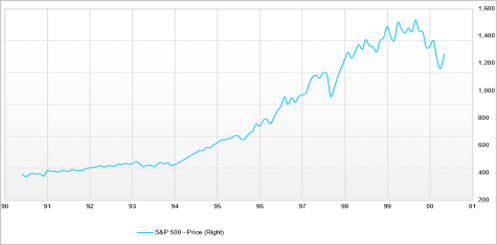
2001 to 2011
While economies and businesses evolved and took advantage of the internet, the US stock market did not appreciate for a decade. Economic growth continued at a healthy pace until 2008. The housing market in the US boomed and creative financial products engineered by banks led to a global financial crisis as the banking system withdrew liquidity from financial markets.
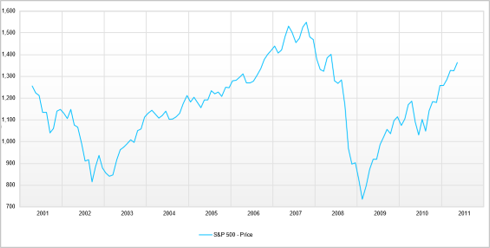
2011 to 2021
This period had the longest bull market in stocks in history, which began in March 2009. Low interest rates supported most industries and the technology sector thrived in a period where online advertising and e-commerce continued to take market share from traditional businesses in retail and advertising. Software businesses thrived and we saw a shift of data and services into the cloud. The top five companies all became technology companies with market capitalisations surpassing $1 trillion dollars each and now comprise over 20% of the total index. We saw the emergence of plant-based meats and cryptocurrencies and the view that Tesla will takeover the auto market.
In 2020 we were hit with a global pandemic and central banks and governments decided to flood the world with liquidity. There was a 26% year-over-year increase in M2 money supply, the largest gain since 1943, as fiscal spending in response to the pandemic has topped $5 trillion in the US. M1, or very liquid money in circulation, is up by 316%. The Federal Reserve began purchasing $120 billion per month of Treasuries and mortgage-backed securities and it is yet to wind back this quantitative easing. Central banks in Europe, Asia and Australia have also followed suit with quantitative easing and money printing and governments have supported economies with helicopter money and fiscal stimulus.
As can be seen below, all these factors have driven the S&P500 up threefold over the past decade.
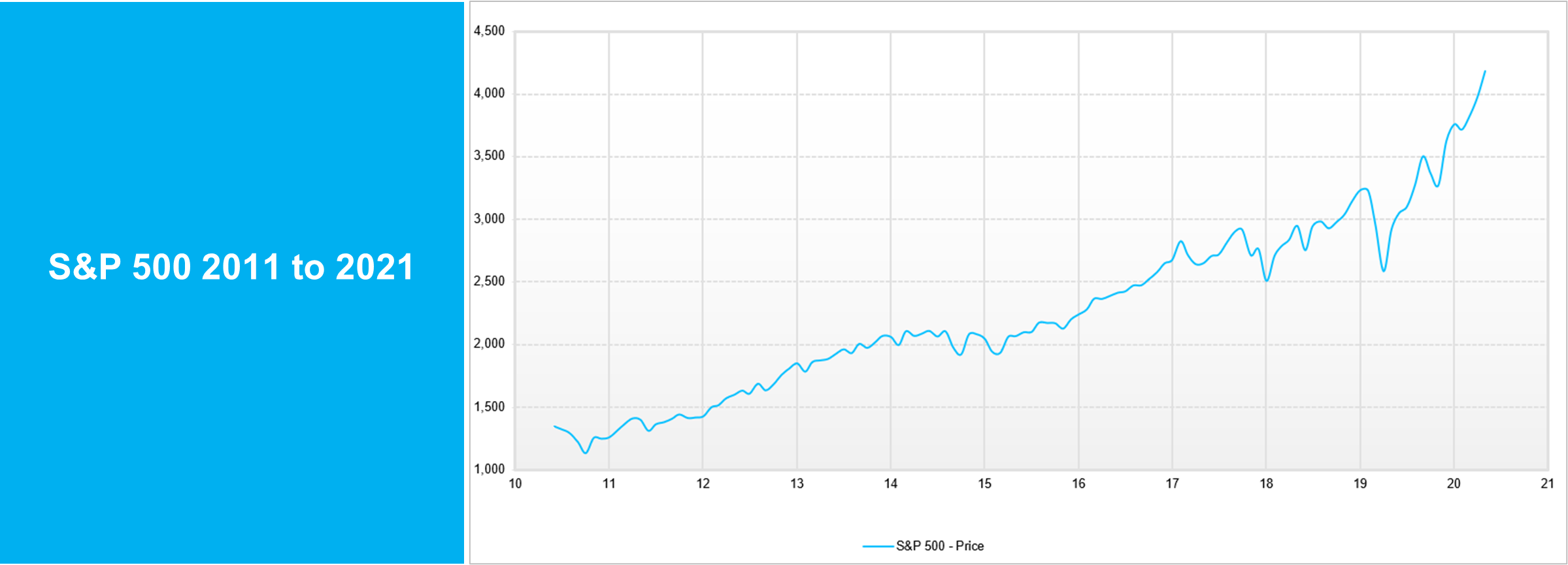
Do all markets behave the same way every decade?
Now what if I asked you how do you think the US market will perform over the next decade, starting from the current level at the current decade high PE multiple of 22x? In 2001, when we were at these levels, the US market had a lost decade with no capital appreciation for a decade as the multiple de-rated.

If you look at the US market, our starting point is similar to 2001. We are seeing excesses with SPACs and a new dogecoin emerging every day with a $2.3 trillion global crypto market.
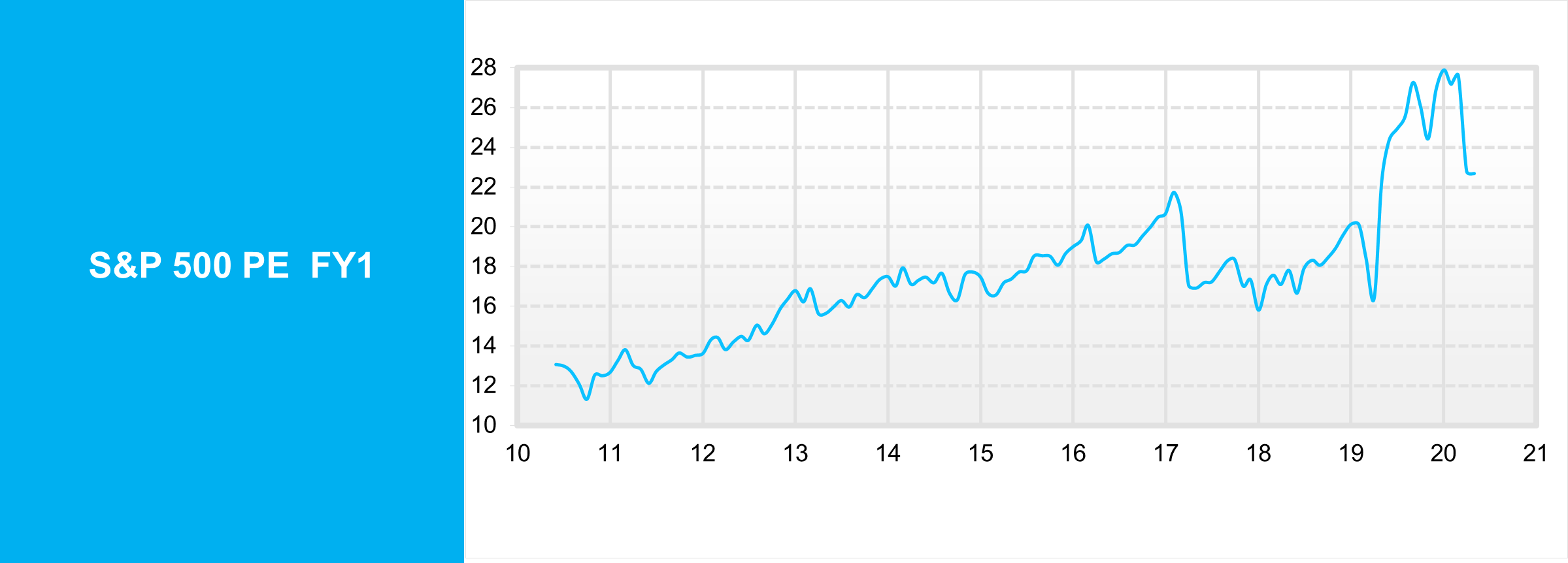
So do you just keep investing in the same expensive stocks or do you search the world for undervalued gems? Just to give you some perspective on how different global markets behave during different periods, you can see the performance of Indonesia’s JSX index from 2001 to 2011 in US dollars below. Over this decade, Indonesia’s index was up 9x compared to the US’s S&P500 which was flat.
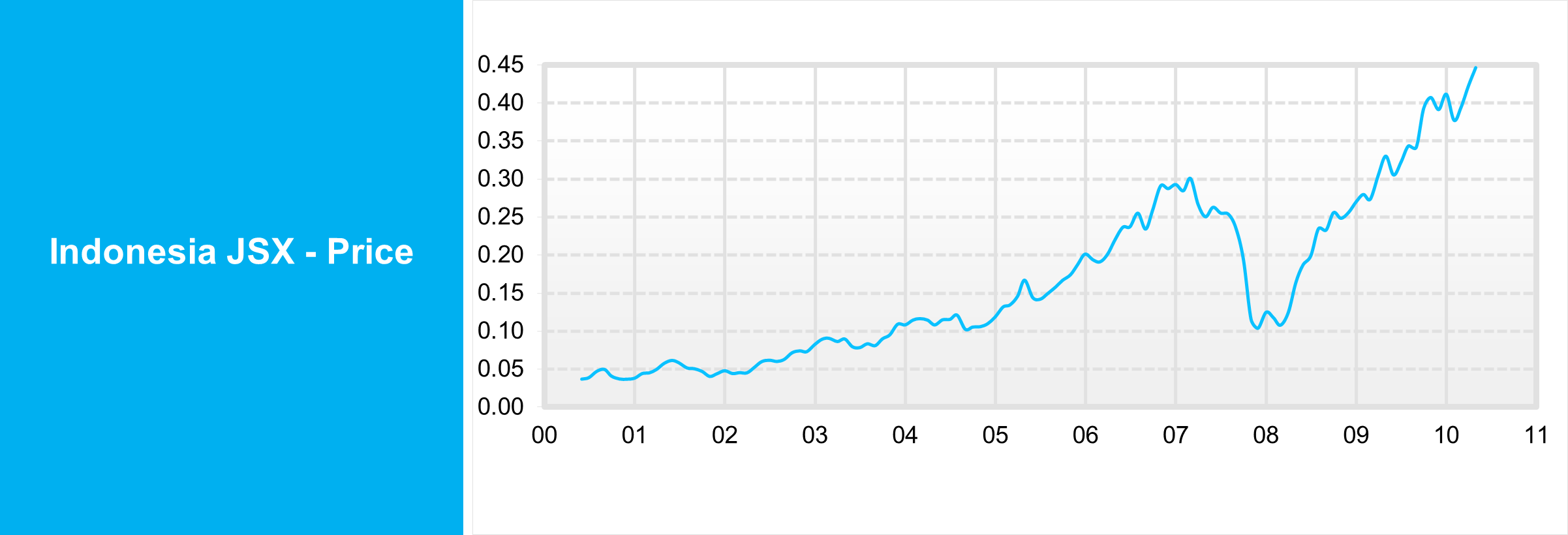
Over the past decade however, while the US index has soared and has tripled in value, the Indonesian market has been flat.

What this highlights is that different industries perform differently over decades, as each geography has a different skew to certain industries. Indonesia has a large exposure to the finance, manufacturing and mining sectors, whereas the US has a large dependence on technology, healthcare and consumer discretionary sectors. It also highlights that the valuation you pay for an asset today will dictate the returns you generate over the long term.
In Part 2, we will discuss how we have positioned our portfolio for the coming decade and talk through some exciting investment opportunities in Brazil, China and the United States. I will give you a sneak peak of part two with our views on Baidu.
Baidu
Baidu feels like Google ten years ago, when you had a leading search engine growing its earnings at double-digit rates, building out other businesses that were not being valued by the market. At that stage Youtube was not really earning much and they were still building out their other bets. Baidu is the leading search engine in China and has 558 million monthly active users on Baidu App. Baidu controls Iqiyi, an internet video streaming service, which has over 100 million paying subscribers. It is also investing heavily in artificial intelligence, cloud services and their driverless car platform, Apollo. These businesses are a 15% drag on earnings but we think will become extremely valuable over the next decade. If you apply a 12x PE multiple on 2022 earnings to the search engine (half the multiple of Alphabet’s Google) and take the value of their stake in Iqiyi, which is listed, you get to the current share price. This means that you are getting their artificial intelligence, cloud, autonomous driving car platform (Apollo) and stake in Trip.com for free. We think attributing a value to these businesses gives you a valuation twice the current share price, which is close to where the stock was trading at in February.
Baidu has been investing in their artificial intelligence (AI) and cloud products for many years now. Last year they spent US$3 billion in research and development for AI, which is used for their cloud services as well as autonomous driving. Their Baidu EasyDL, is a machine learning service that was rated number one in China in terms of usage. PaddlePaddle, is the first open-source deep learning platform in China and is being used by more than two million developers and 85,000 enterprises globally. It is being used in a variety of industries with applications such as garbage sorting robots to pneumonia CT image analysis, enabling a Beijing based company to develop an AI powered pneumonia screening system. Banks are using Baidu’s AI PaaS to automate customer service and consumer loan approvals, while China’s CCTV is using it to automate video clips and locate video content.
While the market has been excited with electric vehicles, which I believe will just become the new normal and the battle will continue to be a battle of brands, the real revolution is in autonomous driving. Baidu has been investing in their Apollo autonomous driving platform since 2013. In 2017 they started mass production of the Apolong bus with level 4 autonomous driving capabilities. Apollo currently has permits to pilot fully autonomous driving in Beijing, Cangzhou and Chagsha and Chongqing signed with Apollo to make its smart transportation infrastructure 5G enabled to support robotaxis.
I was fortunate enough to go to BMW’s innovation centre in Munich and spent several hours learning about the difficulties of getting cars to level 4 autonomous driving and establishing robo taxis. BMW said that they expect this to occur in 2025. They said that it was easier to have autonomous cars in cities with grid like streets. That is why most of the successful testing has occurred in Las Vegas, in the US. You require more artificial intelligence in rural areas as there are more variables that occur, such as fallen trees or snow. Beijing is actually well set out for automonous cars and it looks like it will be the first global city to have driverless robotaxis, thanks to Baidu’s Apollo. They are launching their services this month in Beijing, which will be China’s first paid autonomous vehicle service. The Apollo Go Robotaxi service is being launched in Beijing’s Shougang Park, one of the venues for the 2022 Beijing Winter Olympics. The total addressable market for robotaxi ride hailing is expected to reach US$224 billion in China by 2025.

